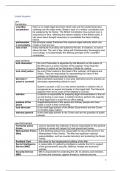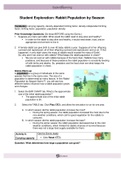Samenvatting
Leer voor de LKT met deze samenvatting!
- Vak
- LKT
- Instelling
- NHL Stenden Hogeschool (NHL)
In dit bestand vind je een overzicht met uitwerkingen van alle begrippen die jij moet kennen en weten voor de Landelijke Kennisbasis Toets voor de Lerarenopleiding Engels Tweedegraads.
[Meer zien]





